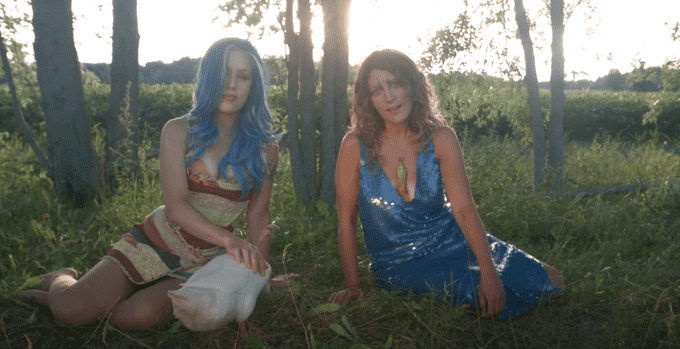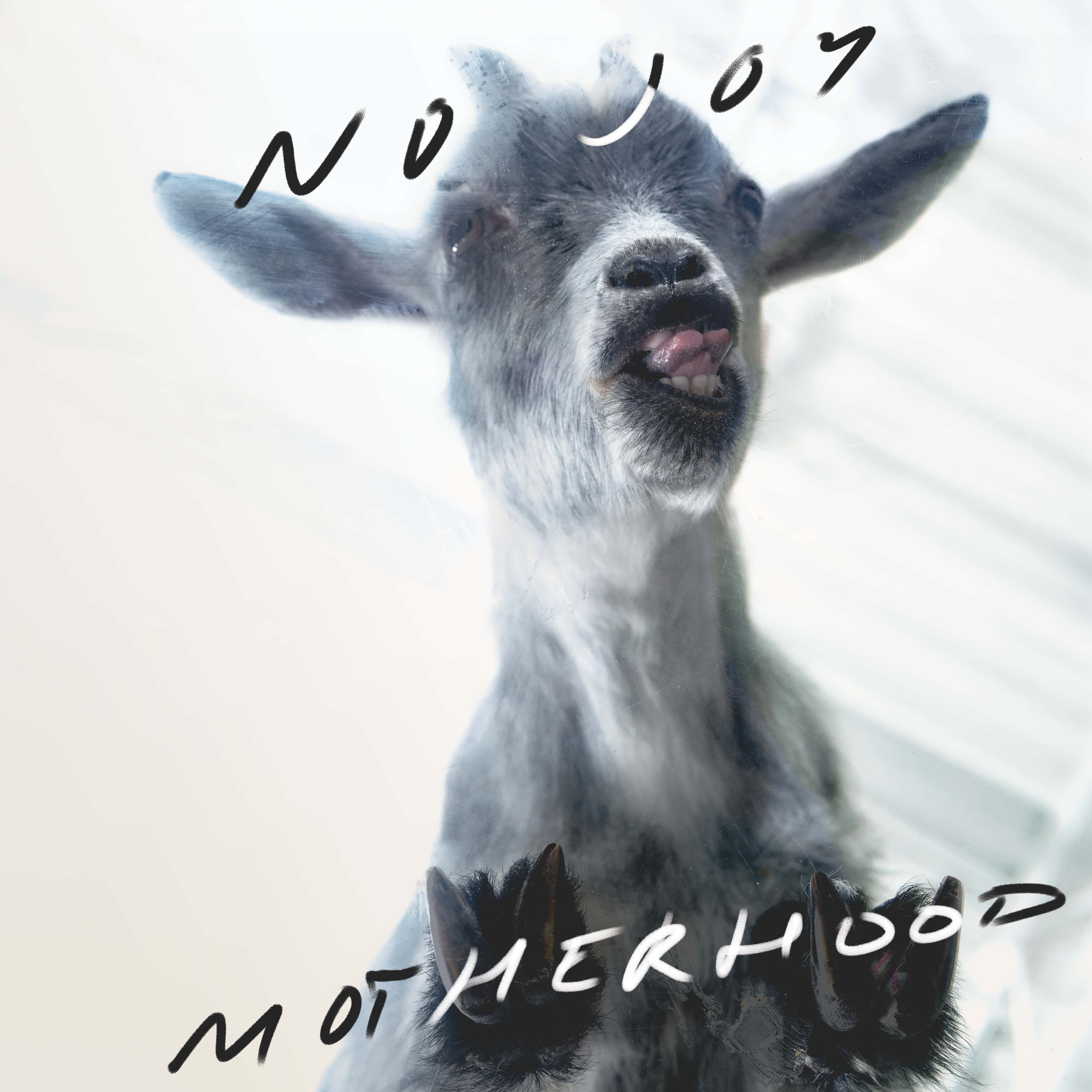'Motherhood' Review: No Joy's comeback LP revels in a melange of shoegaze, trip-hop, metal and electronica

No Joy, the Montreal-based project featuring the Canadian singer Jasamine White-Gluz, will be releasing their fourth studio album, 'Motherhood' on August 21 via Joyful Noise Recordings and Hand Drawn Dracula. This is No Joy's first album in five years, coming as the belated followup to 2015's 'More Faithful'. No Joy was originally started as a shoegaze project back in 2009 as a creative endeavor between White-Gluz and Laura Lloyd, trading riffs and ideas over e-mail. No Joy would go on to make spectacular records that dabbled in everything from delay-drenched jangle pop and industrial distortion to sludgy drone music and disco beats. However, as of 2020, it appears that Lloyd is no longer involved in the new sonic direction No Joy is headed in, and White-Gluz is now considered the principal songwriter and focal point in No Joy's latest musical pursuits.

During her time off, White-Gluz had been keeping herself busy, immersing herself in a variety of genres and creative disciplines that reflect in her updated sonic template. Feeling she was too reliant on guitars as her primary instrument, she embarked on a modular electronica collaborative EP in 2018 with Sonic Boom, aka Spacemen 3’s Peter Kember. White-Gluz also toured with the post-hardcore outfit Quicksand and the ambient techno musician Baths, picking up a number of fans along the way. After spending many years outside her comfort zone, learning, deconstructing, and reshaping her craft, she returned to her roots as a DIY recording artiste, now with an added expertise in production and a refined perspective on multiple genre synthesis. The result of her efforts paved the way for 'Motherhood', which contains a dizzying array of sounds and influences, ranging from dream pop, shoegaze, and nu-metal to trip-hop, trance, and ambient electronica. “As long as people are open-minded about music, they can hear different things,” explains White-Gluz, “Maybe because there are a lot of layers.”

The metal influences are no coincidence, considering White-Gluz's sister is Alissa White-Gluz, the vocalist of the deathcore supergroup Arch Enemy. 'Motherhood' was co-produced by Jorge Elbrecht (Ariel Pink, Sky Ferreira, Japanese Breakfast) who also played multiple instruments during the recording process. Other notable contributions come from drummer Jamie Thompson (Islands, Esmerine), guitarist Tara McLeod (Kittie), and the sound engineers Madeleine Campbell and Chris Walla (Death Cab for Cutie). There are a variety of textures and timbres on this album as well, including ethereal harmonies, shrouded vocal ad-libs, guitars, banjos, drum machines, plastic clarinet, scrap metal, skits, bongos, and an analog synthesizer called the EMS Putney.
The opening track and lead single 'Birthmark' combines '90s dance-rock vibes with phasing fuzz in a loud-quiet-loud arrangement, sounding like a baby birthed by Republica, the Prodigy, and the Deftones. Amid an array of floating keys, skittered beats, driving guitars, and elastic bass, White-Gluz declares, "He’s the one / My always lonesome one / She’s the one / All tiny bones and tongue / Be the one / Like when we were so young / Keep whatever's left if you love somebody."
'Dream Rats', which features White-Gluz’s sister, Alissa, manages to cram metal screams, synth choir, blast beats, cowboy leads, and signal-jammed shredding into one song. It's a spectacular marriage of both dreamy elements and brutal sounds, as White-Gluz coos "Are we foaming at the bloom / May your womb dry up / Are we bored inside the tomb / May your womb give up / Sorry to be all upset / Every little child’s a threat / Maybe going to need some time / Get the body off my mind."
'Nothing Will Hurt' melds detuned arpeggios, Krautrock elements, slapped bass, and endless vocal layers into one mesmerizing mix. The dreamy lyrics include, "I’m not the only one / Watching what you’ve become / Nothing is better than / Watching us die alone / Brighter than all the sun / A tree inside of her ocean / Nothing will ever hurt / You will fade until it does / Baby don’t cry / Until I see you again / Time will eat itself."
Meanwhile, on the DJ-scratching wah groover 'Four', White-Gluz explores the implications of her parents’ aging while they took care of her as a child, on a song that juxtaposes snippets of laughing baby alongside some brutal metal riffage. "Just keep calling me Baby / All night long" go the dreamy lyrics.
The track 'Ageless' melds bubbling Krautrock synths and motorik beats with pitch-shifted vocals that hazily croon "You used to fit in the palm of my hand / Small as the rocks that we kicked in the sand / Then you became and forgot the things we planned / We are two words neither understands / My hope for you / I hope you do / Let Go."
On 'Why Mothers Die', an almost atonal piano progression introduction meets sliding bass, wailing guitars, and a lush bed of vocal coos that elevate it into the billowing clouds overhead. The introspective yet almost despairing lyrics go: "How many times do I make it home / Someday I'll go out in the light / Right now I can’t even survive / Someday I’ll be fine / Let down by me / Sorry I tried."

'Happy Bleeding' is another sparkling synth experiment that tackles the coming-of-age with inventive drum breakbeats and warped, fuzzy layers, as White-Gluz sings "Is it enough / It's not enough / Golden sunrise / Spirit wife / Happy bleeding / Thighs on fire / Are we moms / Or are we daughters / Your time is up / You aren't ripe enough."
The lullaby-like 'Signal Lights' has a number of shimmery dream-pop layers and choir-like strains before a glowering fuzz storm takes over and gradually subsides into glistening guitars. "Oh by your shaped tongue / We dream of somewhere young / And I took your words / Spit fire into the sun," sings White-Gluz.
On the ethereal and graceful 'Fish' which contains everything from a kalimba and shuddering industrial beats to fuzzy guitars and moody synths, White-Gluz coos "Here at the end of the world / With nothing / And I hope that when I'm gone / I'll miss my skin / These arms and these legs / They're forming / Been with me for so long / I barely know them / Miss a face / Until it is gone."

"Will I regret not opening my insides out?” she sings on the gorgeous and thumping 'Primal Curse', during which she reads an optimistic letter her mom wrote as a teenager to her future kids. Snippets include "Own your womanhood / In the world / If you are / Lining undone / Hit her with the primal curse / Always hurt the ones you love /Always hurt them before they're born." As the singer explained, "Time is critical, and you have to make decisions that are extremely time-sensitive and your body doesn’t care. It’s a lot of seeing myself through my mother’s experiences, and the physicalness of a body getting older.”
The album closer 'Kidder' is another blissed-out feast for the senses piled high with synths, pulsing beats and fuzzy washes, as White-Gluz declares, "And at last you grow to be a good mom / Because you had one / All these good thoughts from my womb / Don’t help at all / Grateful for the family that loves me still / But I can't seem to make my own / Nothings left to love / All of mine."
Interestingly, White-Gluz hadn’t read Sheila Heti’s 'Motherhood' when she wrote and titled this record, but when she did, the narrative parallels between the two projects were “like looking into a mirror.” Heti’s book’s central theme is an open-ended pondering of whether dedication to writing is more significant than the desire to have children. No Joy doesn’t definitively answer this existential conundrum, either... How could anyone? Instead, 'Motherhood' is a beautifully dense exploration that proves how thoughtful, multi-faceted music can give birth to art that is rich, vast, and alive.










